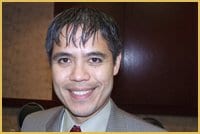The history of colonization and residential schools, in addition to the often racist attitudes of the queer community, means that aboriginal people who identify as queer are doubly marginalized, says Karen Joseph, co-chair of the National Aboriginal Gay/Lesbian/Bi/Trans/Queer/Two-Spirit Summit that took place in Vancouver Apr 6-8.
“Even the GLBT communities that do recognize us embrace this concept [of] two-spiritness and think that’s a reality for aboriginal GLBTQT. And the reality is that that’s not true — it’s an ideal,” says Joseph, adding that “the place that we exist in is far different from that.”
The summit, entitled ‘Nat’namwiyut – We Are All One, is an attempt to create space and explore ways of coming together not only for young aboriginal people but queer aboriginal leadership, says Joseph.
Provincial health ministry physician Dr Evan Adams, who identifies as two-spirited, says while there are many two-spirited people in his family, it wasn’t something that was easily discussed. “Now we talk about it very easily,” he says.
“I’ve just moved home because I think many of us have to leave home and go to the city and find others who are like us,” says Adams. “At the time, I wanted something different, to see who I was, to see what was out there, and it was time to come home. And I went home with my partner and my son. It was just so complete, normal, the way it should be. Our families shouldn’t be torn apart by our identity.”
It’s important for queer aboriginals to be part of aboriginal governance as well, to ensure their voices are at the fore because “the issues that we face are different,” Adams points out.
“For instance, parenting. Parenting is something that’s so beautiful and wonderful, but for us to parent is a different take. What is the acceptance from our families? What happens when there are two moms? How are we counted? Are our children safe saying, ‘I have two moms’?
“These are basic issues of inclusion and equality and fairness,” Adams contends, “but we need to police them, all of us. We need to ask over and over again, ‘Are we speaking for all of us, are we addressing the issues?'”
Summit co-chair Lynda Gray observes that while there are “lots of discussions about policy issues right now” in native, queer and mainstream communities, two-spirited people are absent from those discussions.
“Scour any of those documents and you won’t see anything, even though we experience the lowest health outcomes and social outcomes,” Gray contends. “And even though we know that, we don’t find statistics on that, because no one is paying attention.”
Adams says he hopes the days of governments making decisions without consulting aboriginal people are over, and urges native communities to invite themselves to the table to speak about their realities.
“We can only do that by sticking together. We all have an idea of what some of the issues are but our viewpoints are disparate,” he notes. “I’m not a woman so I can’t speak for women. I need to hear those stories. I can’t speak for young people or elders. I need to hear from them what their experiences are.
“For those of us from health, we need to stop and listen. What can we do right away that’s going to have an impact? What should we start chipping away at? Because we absolutely have to do that,” Adams insists, pointing to issues like mental health, substance abuse, social inclusion in occupation, education and housing, as well as equality and fairness and acceptance within the larger gay, lesbian, bi, trans, queer community.
“I know in the past that I had a boyfriend who didn’t tell his parents I was aboriginal until we were face to face and the horror on their face, ‘You’re with an Indian guy?’ They really had trouble for a few hours, and that was the strangest kind of rejection or humiliation I’ve ever had,” Adams recalls.
Within the broader aboriginal community, Adams calls for a reaffirmation of the traditional role of two-spirited people.
“We used to be important members of our families, of our extended families. We’re not here simply asking for a role. We’re saying we have much to offer so we do offer our expertise and our knowledge.
“Being two-spirited means that we do have a viewpoint that is both masculine and feminine. We’re able to gain strength from having a foot in two worlds,” says Adams, who notes that in his travels to hundreds of aboriginal communities, he generally found acceptance of his sexuality.
But sexuality tends to be a taboo topic in indigenous communities because of the residential schools experience, says Joseph, noting that public expressions of sexuality, regardless of orientation, are frowned upon.
“When you compound that with doctrines that say that sexuality is not a good thing, and the levels of trauma experienced in residential schools, and then you compound on that a type of sexuality that in that doctrine is considered deviant, it’s really hard for our communities to talk about it.
“For all of us as indigenous people, we need to be looking at what is healthy sexuality and how we look to express that,” Joseph concludes.


 Why you can trust Xtra
Why you can trust Xtra


